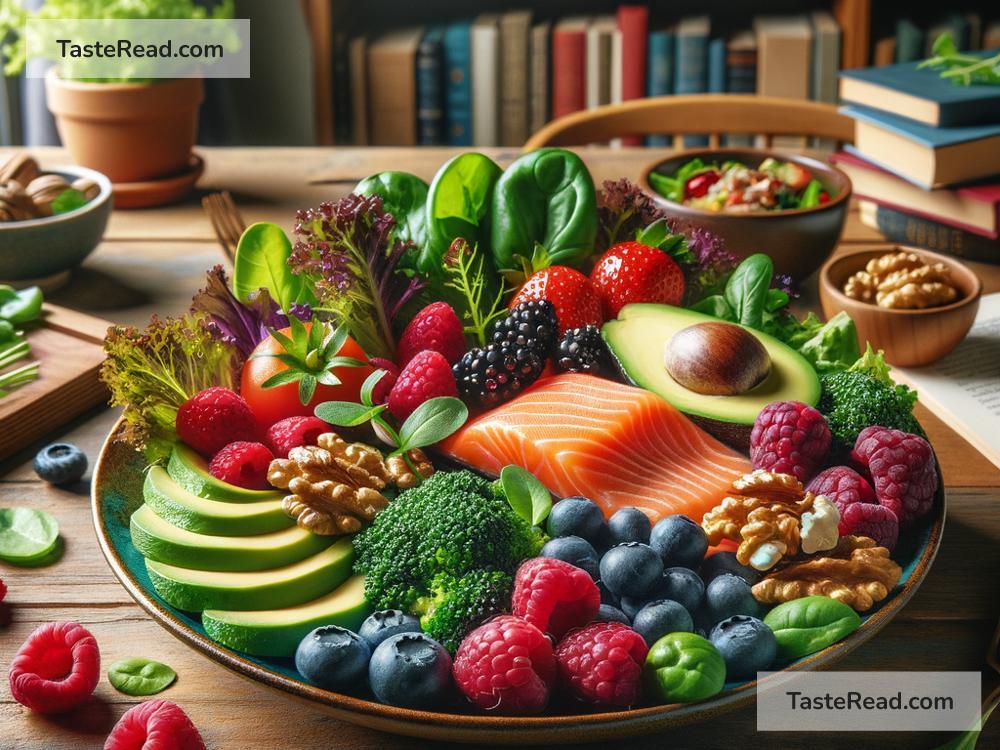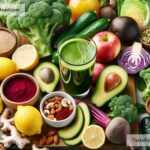The Benefits of a Balanced Diet for Cognitive Health: Supporting Brain Function
Food is fuel for our bodies, but did you know it’s also fuel for our brains? The food we eat plays a huge role in how well our brain works. Our thoughts, memory, focus, and even our mood are connected to the nutrients we give our body. Eating a balanced diet is one of the most powerful ways to support our cognitive (brain) health and keep our minds sharp for years to come.
In this blog post, we’ll explore what a balanced diet is, how it helps your brain, and which foods are best for cognitive health—all in simple, easy-to-understand language.
What Is a Balanced Diet?
A balanced diet is when you eat a variety of healthy foods from different food groups. Instead of focusing on one food type, it’s about making sure your meals include:
- Fruits and Vegetables: Packed with vitamins, antioxidants, and fiber.
- Whole Grains: Foods like whole wheat bread, oats, and brown rice give energy and important nutrients.
- Proteins: Lean meats, fish, eggs, beans, tofu, and nuts help build and repair tissues.
- Healthy Fats: Found in foods like avocados, nuts, seeds, and oily fish (e.g., salmon).
- Dairy or Alternatives: Sources of calcium, like milk, yogurt, cheese, or plant-based options.
A good mix of these food groups keeps your body strong and your brain functioning properly.
How Does Food Affect Brain Function?
Your brain might be small compared to the rest of your body, but it uses a lot of energy—about 20% of the calories you eat! For your brain to work well, it needs the right nutrients.
Here are just a few ways food impacts cognitive health:
-
Boosting Memory and Learning: Nutrients like omega-3 fatty acids, antioxidants, and vitamins (like Vitamin E) help improve memory and learning abilities. These nutrients protect your brain cells and keep them working efficiently.
-
Reducing Brain Fog: Have you ever felt tired or unable to focus after eating junk food? That’s because foods high in sugar and unhealthy fats can cause inflammation in your brain. A balanced diet helps avoid brain fog by giving your mind steady, clean energy.
-
Improving Mood: What you eat influences chemicals in your brain that control your mood. For example, foods rich in magnesium, like spinach or nuts, can help fight anxiety, while whole grains encourage the production of serotonin, a chemical that makes you feel happy.
-
Preventing Brain Diseases: Eating healthy today can prevent problems in the future. Antioxidants, found in colorful fruits and veggies, reduce oxidative stress, which is linked to Alzheimer’s and dementia. Omega-3 fatty acids also protect brain cells from aging.
-
Supporting Concentration: Your brain thrives on steady energy from complex carbohydrates. Skip sugary snacks, which give you a quick burst of energy followed by a crash, and choose healthy options like oatmeal or sweet potatoes for longer-lasting focus.
Foods That Support Cognitive Health
Now that you know why food matters for the brain, which foods are the best? Let’s look at some brain-friendly options:
1. Fatty Fish (e.g., Salmon, Tuna, Sardines):
Fatty fish contain omega-3 fatty acids, which are essential for brain health. Omega-3s improve memory, protect brain cells, and even help with mood disorders like depression.
2. Leafy Greens (e.g., Spinach, Kale, Broccoli):
Vegetables like spinach and broccoli are rich in antioxidants, vitamins, and minerals. They protect the brain from damage and keep your cognitive skills sharp.
3. Berries (e.g., Blueberries, Strawberries, Blackberries):
Berries are full of antioxidants that fight oxidative stress and inflammation. They also enhance communication between brain cells and improve memory.
4. Nuts and Seeds (e.g., Almonds, Walnuts, Chia Seeds):
Nuts and seeds pack a punch with healthy fats, Vitamin E, and magnesium. Walnut, for instance, may boost problem-solving skills and brain function.
5. Whole Grains (e.g., Quinoa, Oats, Whole Wheat Bread):
Whole grains give your brain a steady supply of glucose, its main energy source, while preventing sugar spikes.
6. Eggs:
Eggs are high in choline, which helps produce neurotransmitters essential for memory and mood.
7. Dark Chocolate:
Dark chocolate contains flavonoids, caffeine, and antioxidants that improve focus and stimulate the brain—but remember, moderation is key!
Tips for Eating a Balanced Diet for Cognitive Health
- Start Small: If changing your diet feels overwhelming, make simple swaps, like replacing white bread with whole-grain bread or snacking on nuts instead of chips.
- Plan Your Meals: Preparing meals ahead of time can help you stick to healthy eating patterns.
- Stay Hydrated: Water is as critical for brain function as food. Drink plenty of it throughout the day.
- Limit Processed Foods: Junk food may taste good, but it doesn’t offer the nutrients your brain needs.
- Enjoy Variety: Eating the same food every day might be easy, but it’s better to eat a wide range of foods to ensure you get all the nutrients your brain requires.
Conclusion
Your brain is the control center of your body, and it deserves the best care you can give. By eating a balanced diet full of brain-boosting foods, you’re not just fueling your body—you’re helping your mind stay sharp, focused, and happy.
It’s never too early or too late to start eating well for your cognitive health. Tiny changes, like adding a handful of nuts to your snack or eating more leafy greens, can make a big difference over time. As the saying goes, “You are what you eat”—and when you choose nutritious foods, you’ll support a brighter, healthier future for your brain.


